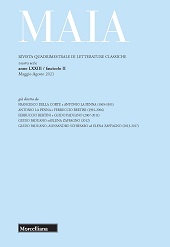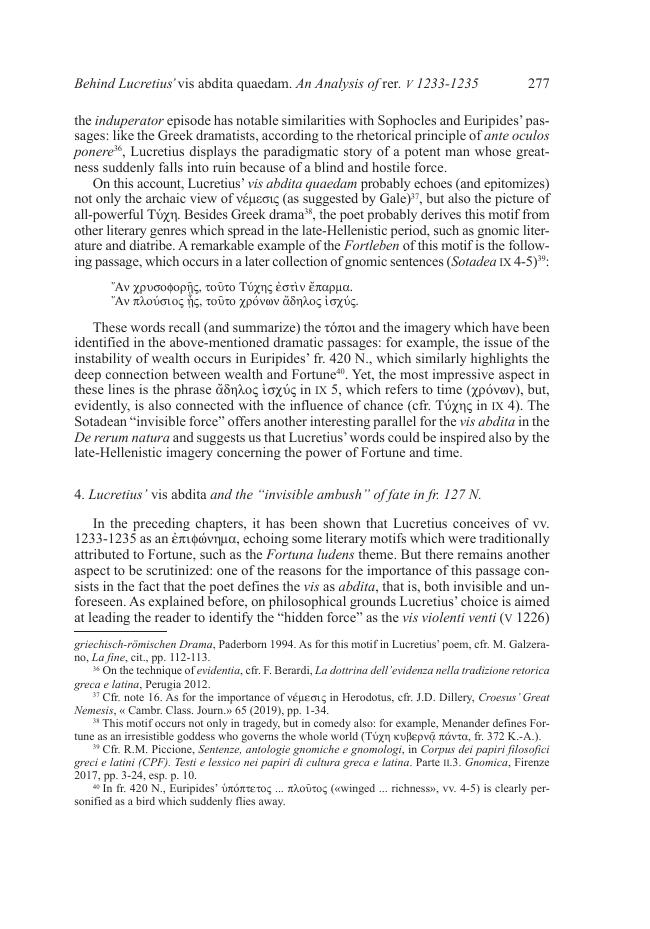Behind Lucretius' vis abdita quaedam : an intertextual analysis of De rerum natura V, 1233-1235
P. 270-284
This article provides a rhetorical and intertextual analysis of Lucr. V 1233-1235 and illustrates the rich literarybackdrop of Lucretius' curious expression vis abdita quaedam, which has been a subject of a lively scholarly debate. Remarkable parallels from Latin and Greek literary tradition demonstrate that Lucretius' vis abdita quaedam is influenced by similar formulas from Greek drama (cfr. e.g. Soph. Ant. 951 and Eur. Alc. 785) as well as from otherliterary genres (cfr. e.g. Sotadea ix 5). It is clear, therefore, that the poet conceives of this passage as a memorable, based on the Fortuna ludens cliché and designed to reveal the psychological mechanism that leads humankind to accept the tyranny of religio. Lucretius seems influenced also by fr. 127 N. – a famous speech written byan anonymous Hellenistic playwright – that portrays the inexorableness of fate, whose ambush is represented assudden, unexpected and invisible.
It is significant that other first-century B.C. authors, such as Diodorus Siculus, Philodemus and Horace, quote (or allude to) fr. 127 N. in order to underline the all powerfullness. This rhetorical contextualization proves that, in the eyes of Lucretius' ancient readers, vv. 1233-1235 were less curious than they have seemed to modern commentators. Moreover, it makes it possible to defend the transmitted text obterit (v. 1234) against the emendation obterere, suggested b to avoid possible ideological ambiguity in this passage. [Publisher's text]
-
Articles from the same issue (available individually)
-
Information
ISSN: 2611-805X



